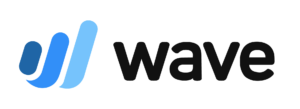We are committed to sharing unbiased reviews. Some of the links on our site are from our partners who compensate us. Read our editorial guidelines and advertising disclosure.
The Best Bookkeeping Software for Small Business 2025
Data as of 3/20/23. Offers and availability may vary by location and are subject to change.
*Current promotion: 50% for three months or 30-day free trial
**Available only for businesses with an annual revenue below $50K USD
To keep your books in order, Business.org recommends QuickBooks Online. Its detailed reports and straightforward interface make it a good software option for non-bookkeepers. Or, if QuickBooks' high starting price keeps it out of your budget, Xero is our preferred runner-up. As one of the best bookkeeping software for businesses, Xero is highly affordable and comes with dozens of freelance-friendly features.
Keep reading to learn more about QuickBooks Online, Xero, and five additional bookkeeping solutions tailor-made for small-business owners like you.
- : Best overall
- : Best for freelance
- : Best invoices
- : Budget pick
- : Best for basics
QuickBooks Online: Best overall bookkeeping software
Data as of 3/20/23. Offers and availability may vary by location and are subject to change.
*Current promotion: 50% off for three months or 30-day free trial
QuickBooks Online sets the standard for bookkeeping software with thorough, easy-to-understand financial reporting. Its cheapest plan includes all the financial reporting basics (profit and loss statements, balance sheets, and cash flow statements), plus sales tax and mileage tracking. Pricier plans include reports for accounts receivable and payable, budgeting, inventory, sales, profitability, and more.
If QuickBooks Online has too many features for your needs but you still want QuickBooks’s stellar reporting, QuickBooks Self-Employed might be a better fit. It starts at $15 a month and includes access to limited reports, plus freelance-specific features like mileage tracking and easy syncing with TurboTax.
As an online cloud-based accounting software, QuickBooks Online was made specifically for non-accountants (unlike the clunkier QuickBooks Desktop, which was made for accountants). Its ease of use is hard to match. Plus, if you spend more time traveling to on-site jobs and less time sitting in front of a computer, QuickBooks Online includes a fantastic mobile accounting app. You can use it to create invoices, capture receipts for easier expense tracking, and access the same financial reports displayed on the online interface.
Unfortunately, even though QuickBooks Online is our top pick, it’s also our priciest one. The cheapest QuickBooks plan starts at $30 a month—higher than any of our other recommended bookkeeping solutions. And if you want the best reporting QuickBooks can offer, you’ll need at least the $55 Essentials plan or, preferably, the $85 Plus plan.
Xero: Best for freelance
Data as of 3/20/23. Offers and availability may vary by location and are subject to change.
Xero is our top accounting software pick for small-business owners—its ease of use, low starting price, and thorough features set it apart. The software’s bookkeeping features include double-entry bookkeeping (the most accurate bookkeeping and accounting method), plus dozens of customizable reports.
In contrast to most accounting software, Xero includes unlimited users at no additional cost. You can generate interactive financial reports any time and send them to your key financial collaborators, including business partners or tax advisors.
Along with its reasonable starting price, Xero's freelance-friendly features include integration with more than a thousand third-party apps. Most importantly, it works with dozens of ecommerce apps for online sellers. And unlike most other bookkeeping software, Xero includes basic inventory tracking with every plan, which is another reason we love it for product-based freelancers and small businesses.
Even though we generally prefer Xero to QuickBooks, QuickBooks Online remains the most popular accounting software for US-based accountants, bookkeepers, and auditing clerks. For instance, most virtual and outsourced bookkeeping services still use QuickBooks or proprietary in-house software—though some, like Bookkeeper360, also sync with Xero.
While QuickBooks Online wins our top spot for now, we’re hoping that as Xero’s user base expands, more accountants and bookkeepers will sign on. That should make collaboration easier for Xero-using small-business owners who (wisely!) work with financial advisors around tax time. And thousands of accountants and bookkeepers do use Xero already, so you can search Xero’s directory to find a local accountant who’s already familiar with the software.
By signing up I agree to the Terms of Use and Privacy Policy.
Zoho Books: Best invoices
Data as of 3/20/23. Offers and availability may vary by location and are subject to change.
*Available only for businesses with an annual revenue below $50K USD
All of Zoho Books’s plans (including its free plan, which is available for small businesses that earn less than $50K USD per annum) include business overview reports, like profit and loss statements. But Zoho Books goes beyond the basics by offering customizable reports in the following categories:
- Sales reports
- Inventory management and reports
- Accounts receivable reports
- Payments received reports
- General activity logs
Zoho also lets you tag reports in ways that are easy for you to sort through, read, and understand. In other words, instead of making non-bookkeepers work to understand their financial data, Zoho Books’s straightforward reporting and simple organization reduces work for non-accountant business owners.
If you make less than $50,000 USD per year, you might qualify for Zoho’s free plan. It includes access for one user plus one accountant or bookkeeper, a chart of accounts, and bank account reconciliation.
Zoho Books especially excels in the world of invoicing. If you send invoices on the go, want to up your chances of getting paid on time by sending recurring invoices to repeat clients, and bill customers all over the world with multilingual invoicing, Zoho has you covered. And while Zoho Books does a great job of tackling all things invoice, you'll get an even better deal by adding Zoho Invoice to your Zoho Books plan. Zoho Invoice is completely free for life, so whether you end up trying Zoho Books or not, we definitely recommend giving Zoho Invoice a look.
Wave Accounting: Budget pick
Data as of 3/20/23. Offers and availability may vary by location and are subject to change.
Wave is our favorite free accounting software option for small-business owners. Unlike most paid software, Wave has unlimited user access, including easy access for accountants and bookkeepers. And along with foundational reports like income and cash flow statements, Wave includes sales tax tracking reports. Most notably, its comparative documents help you understand your business’s finances to make wise financial decisions.
But since Wave Accounting has just one plan, it’s not necessarily ideal for growing businesses that might need a heftier accounting tool in the future.
On the other hand, Wave lets you juggle multiple businesses at no additional cost. If you want to track your Etsy shop’s sales separately from your eBay or Amazon store’s profits, Wave might be a good fit.
Sage Business Accounting: Best for basics
Data as of 3/20/23. Offers and availability may vary by location and are subject to change.
Like Xero and QuickBooks, Sage Business Accounting’s reports are user friendly and very easy to read. Its business trend reports are particularly useful—they compare your business’s current health with its past growth and future goals so you can keep your business on track for success.
Sage also offers a lot of support to first-time business owners with minimal bookkeeping experience. Its live Q&A chat lets you ask an expert financial questions during business hours, and you can always schedule an appointment with a Sage Accounting expert.
Sage Business Accounting starts at just $10, which is perfect for freelancers and self-employed business owners with no employees. But to get the most out of Sage Business Cloud Accounting, you really need the $25-a-month plan. The cheaper plan limits you to basic reports and one user only. In contrast, the pricier plan includes more thorough reporting, unlimited users, and cash flow forecasting.
Get a customized bookkeeping software recommendation
Want advice specific to your unique business? Answer a few questions about your accounting software needs and we'll send you up to five customized recommendations. Find the right bookkeeping solution for your business.
Best bookkeeping software honorable mentions
Didn’t find your ideal bookkeeping software in our top five? Here are two more bookkeeping options to explore.
Compare business bookkeeping software: Honorable mentions
Data as of 3/20/23. Offers and availability may vary by location and are subject to change.
*Current promotion: 60% off for 6 months or 30-day free trial
**For the first year
FreshBooks: Runner-up
Data as of 3/20/23. Offers and availability may vary by location and are subject to change.
*Current promotion: 60% off for 6 months or 30-day free trial
FreshBooks’s accounting software includes color-coded, user-friendly reports for expenses, sales tax summaries, accounts aging, and invoice details. (Speaking of invoices, they’re the reason we like FreshBooks so much: its professional invoices are easy to generate and for your clients to collaborate on.)
In spite of its excellent reports and recurring invoices, though, FreshBooks falls short in a few bookkeeping areas. Most notably, its cheapest plan doesn’t include double-entry bookkeeping or free accountant access. For accountant access, more accurate bookkeeping, and detailed business health reports, you’ll need the $30-a-month Plus plan (non-promotional price).
Kashoo: Runner-up
Data as of 3/20/23. Offers and availability may vary by location and are subject to change.
*For the first year
Kashoo’s cheapest plan offers all the financial tracking basics: income and expense tracking, sales and sales tax tracking, and all essential financial statements. If you want to track inventory and manage projects, you’ll need the $2-a-year plan (only for the first year), which also includes accounting tools like a customizable chart of accounts.
By all accounts, Kashoo also has fantastic customer service. If you’re nervous about setting up accounting software for the first time, Kashoo’s experts can talk you through it. So while Kashoo isn’t as comprehensive as competitors like QuickBooks, Xero, and FreshBooks, its customer service reputation is a definite point in its favor.
The takeaway
QuickBooks Online has some of the best reporting and bookkeeping features money can buy. Want a cheaper, fully featured option? Xero, Sage Business Accounting, and Zoho Books have stellar reports at a lower starting price than QuickBooks. And if you want straightforward finance tracking without in-depth analytics, Wave Accounting can help you with the basics.
No matter which software option you choose, remember: bookkeeping is foundational to running a successful business. Whether you’re a freelancer with a few clients a month or a small-business owner with 10 employees and counting, bookkeeping software will help you track profits, plan for the future, and keep all of your accounts in order.
Want to check out software ranked by accounting features, not just bookkeeping basics? Read through our reviews of the best accounting software options for small businesses like yours.
Related reading
Bookkeeping vs. accounting
Bookkeeping and accounting are sometimes used as synonyms, but bookkeeping is a lot more basic than typical accounting. Generally speaking, bookkeeping means tracking finances to create solid records while accounting means analyzing those records to draw conclusions about your business's financial health.
While you can do bookkeeping without accounting, you can't do accounting without bookkeeping. (Without any records, what will you analyze?) All of the bookkeeping solutions we review below are fully fledged accounting software—and as such, they include bookkeeping tools that can simplify your financial life, whether you're a sole proprietor, gig economy freelancer, or owner of a midsize corporation.
Want to learn more about bookkeeping before sorting through your software options? Check out these resources:
Bookkeeping software FAQ
QuickBooks Online is one of the most popular bookkeeping software choices in the US. Its comprehensive reports are easy for first-time business owners to generate and understand, and it offers more thorough reporting than just about any other software out there.
But QuickBooks Online isn’t necessarily the best online accounting solution for you. (For one thing, it starts at an above-average monthly price.) Xero and Wave Accounting are more affordable with similar reporting features. FreshBooks has much better invoicing with clear, color-based reports. And both Sage Business Cloud Accounting and Kashoo have more solid customer service.
Luckily, most bookkeeping software comes with a free trial. (Notably, QuickBooks Online offers 50% off for three months or a 30-day free trial, so be prepared to forego one of them if you want to test drive your software.) Finding the best bookkeeping software for you is crucial to your business’s success—try as many options as you need to settle on one you feel confident in.
Our top free bookkeeping software recommendation is Wave Accounting. It offers fully featured reports and full accountant and bookkeeper access. Along with unlimited users, it lets you add unlimited bank accounts and credit cards for easier (and more accurate) bank reconciliation. Its chart of accounts, journal entry generation, and multi-business management make it a good fit for small and midsize businesses alike.
If you don’t love Wave, though, you have other options. ZipBooks lets you toggle between cash and accrual-basis accounting. Odoo and TurboCASH can streamline cash management for international companies. Read through our reviews of the 10 best free bookkeeping options to learn more.
What accounting software do bookkeepers use?
Most bookkeepers and accountants use the same popular software small-business owners do, especially QuickBooks Online, Xero, and Sage. Oracle NetSuite and FreshBooks are two other popular bookkeeper software options.
However, you can share most accounting solutions with an accountant or bookkeeper, including accounting software that otherwise limits its users by plan. (For example, QuickBooks Online’s cheapest plan allows for just one business user, but it includes accountant access at no additional cost.) Regardless of the accounting system you use, you should be able to share it with a bookkeeper come tax time with no problems.
Some bookkeeping companies and accounting firms use proprietary in-house accounting software. If you’re planning to work with a bookkeeping company rather than hiring a solo bookkeeper, make sure to ask about its accounting system. If the accounting firm uses QuickBooks but you’ve used Zoho Books to this point, transferring your financial data into a new accounting software package might cost extra. (Or it might not—which is why you should ask!)
Our methodology
To find, rank, and recommend the best bookkeeper software for small businesses, we evaluated a few key criteria:
- Adherence to bookkeeping best practices, including double-entry bookkeeping, bank reconciliation, chart of accounts generation, and automatic journal entry generation
- Number and type of financial reports, including foundational reports (profit and loss statements, balance sheets, and cash flow statements) and more thorough, customizable, and exportable reports
- User access, including free bookkeeper and accountant access
- Customer service options, ease of use, mobile app access, and customer reviews
We weighted each category equally in calculating our star ratings.
Disclaimer
At Business.org, our research is meant to offer general product and service recommendations. We don't guarantee that our suggestions will work best for each individual or business, so consider your unique needs when choosing products and services.






